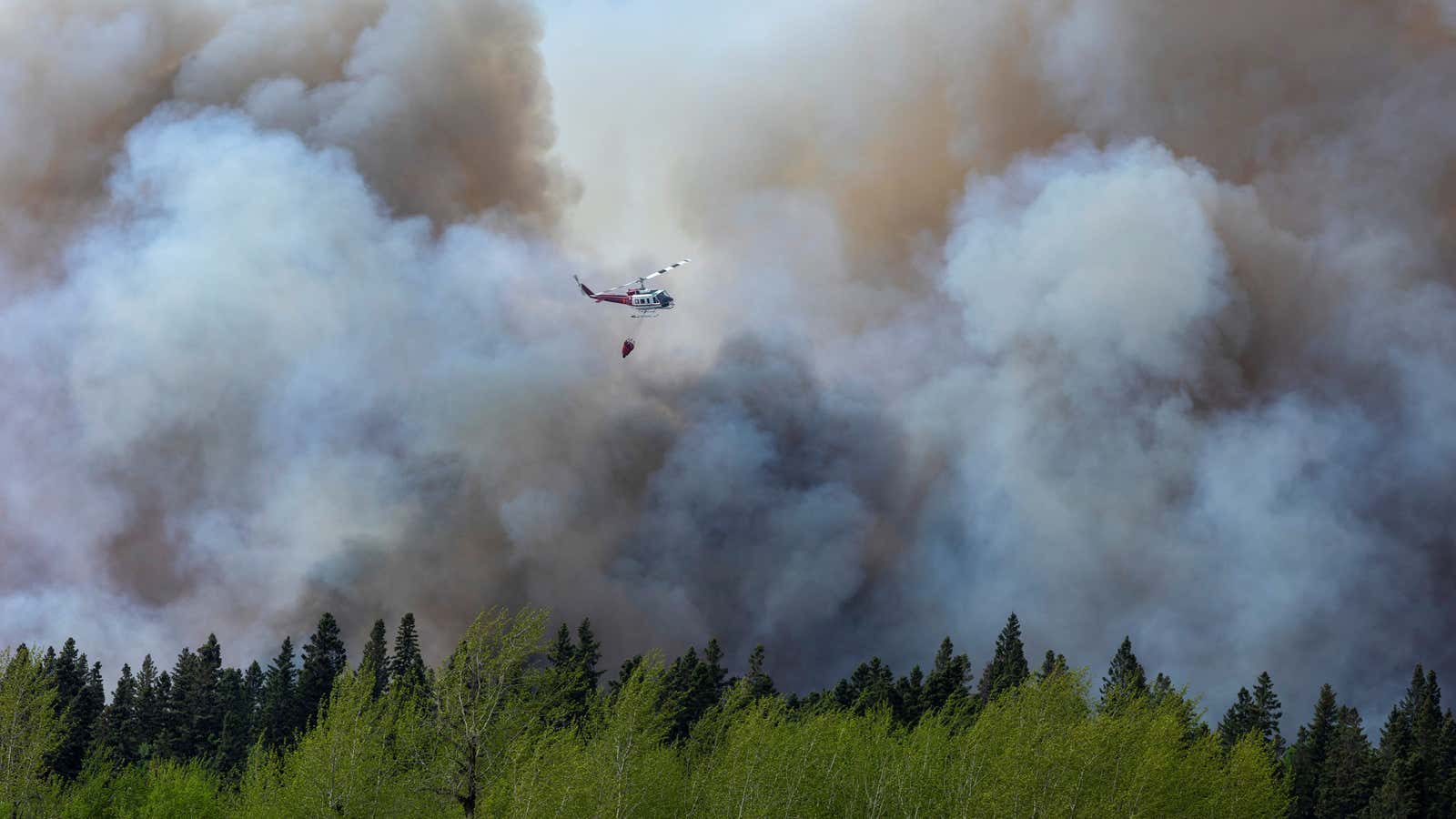The heatwave that wracked the US northwest and western Canada over the last few weeks, leaving hundreds dead and fueling an ongoing wave of catastrophic wildfires, would have been “virtually impossible without human-caused climate change,” according to a new scientific report. Temperatures in the northwest and Canada have moderated this week. Next up is California, where temperatures are headed toward record highs over the weekend.
The study, published July 7, was based on historical temperature data and projections by more than a dozen computer climate models. Even by the standards of today’s messed-up climate, the heatwave—which broke all-time temperature records for Seattle, Portland, and all of Canada—was exceptional, the report concluded, with a likelihood of about 1 in 1,000. But in the absence of global warming, it would have been 150 times rarer.
The study was conducted by World Weather Attribution (WWA), a research coalition that includes climatologists from Princeton, Oxford, the US National Center for Atmospheric Research, and the Royal Netherlands Meteorological Institute, among others.
The growing field of climate disaster attribution studies
It’s always a bit tricky to say whether any individual extreme weather event was “caused” by climate change. Climate scientists deal in probabilities, and tend to focus on long-term trends—including the near-certainty that heatwaves are becoming more common, more extreme, and more deadly.
But the field of attribution studies, which seeks to link specific droughts, heatwaves, and storms to man-made greenhouse gas emissions, is growing quickly. Out of 405 events that have been scrutinized in peer-reviewed attribution research since the early 2000s, 70% were “made more likely or more severe by human-caused climate change,” according to a March metanalysis by Carbon Brief. Many of those studies were led by WWA.
The new study also carries a warning for the future: In a world that’s two degrees Celsius warmer than pre-industrial levels (it’s already up 1.2C and could cross the 2C mark in the 2040s), the heatwave would have been at least another degree Celsius hotter.
